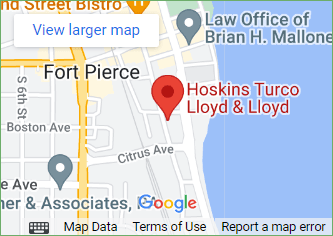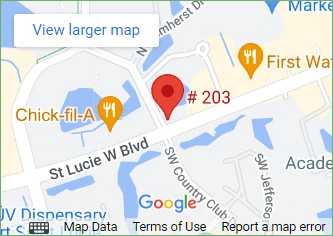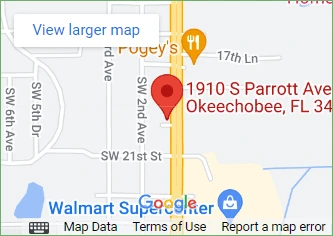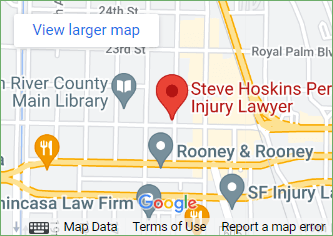Auto Accident Settlement
How Can I Prove That a Traumatic Brain Injury Was Caused by Someone’s Negligence?
Traumatic brain injuries are devastating, with lifelong effects. When someone else has caused your injury, you can legally force them to pay you for all of your medical costs and other losses. However, in order to do so, you must first establish that they are “liable” — or responsible — for your injury.
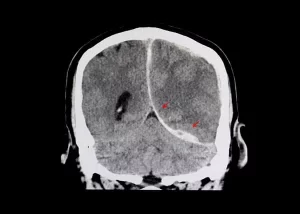
Proving negligence requires four main parts, which we will cover in greater detail below:
- Duty of care
- Breach in duty
- Proximate (direct) cause of an injury
- Damages
What Is a Duty of Care?
A “duty of care” is a legal duty to avoid causing harm to others. Everyone has a duty of care to obey the law and generally act like a “reasonable person” would by exercising “ordinary care”. When someone breaks the law or takes actions that a reasonable person would know to be dangerous, then they have committed a breach of their duty of care.
Lots of duties of care are unique to specific people or situations. When driving, everyone on the road has a duty of care to follow all traffic laws, for example. They also have a duty to be cautious and safe on the road. For example, they should always check their blind spot before changing lanes. They should also be sensible when trying to merge with traffic while entering a freeway.
Property owners and tenants have specific duties of care to address hazards. A business that is open to the public, for example, has to make sure that there are no tripping hazards or standing liquids on the floor. The property owner has a duty to make sure the parking lot is well-lit and that safety measures like stair railings are available.
Professionals have specific duties of care, especially medical providers. If a construction company fails to keep pedestrians out of the way of a site where debris could fall on someone’s head, for instance, they may have failed to uphold their duty of care.
What Is a Breach in a Duty of Care?
A “breach” refers to the specific act or omission that broke the rules established by someone’s duty of care. When a person haphazardly changes lanes or a store employee fails to put out a wet floor sign, then they have committed a breach in their duty of care.
Proving that a breach occurred can take some investigating. One strong example is when a truck driver causes an accident that leads to a traumatic brain injury. At first, the police report may indicate that no one was at fault. A smart traumatic brain injury lawyer knows to dig further, though. They can subpoena (request) that the trucking company provides the “black box” that documents how much the truck traveled and when the driver took breaks. If a truck driver has driven longer than federal Hours of Service laws allow, then the employer could be found to have breached their duty of care that involved making sure drivers got the needed breaks.
What Is a Proximate Cause of an Injury?
The “proximate” cause of an injury is the most direct reason that the injury occurred. For someone to be found negligent, their breach in duty must have actually been the cause of harm to the individual.
For example, if falling debris at a construction site caused a traumatic brain injury, then a personal injury lawyer’s main concern is proving that the site’s negligence was why the debris fell. However, if a strong wind was the real reason the debris fell, then an unrelated breach in duty is not enough to establish a proximate cause. In this case, it doesn’t matter how many rules the construction site violated — unless the victim can prove that something other than an unpredictably strong wind led to their accident.
What Are Damages?
“Damages” are any type of loss inflicted in a personal injury case. The most common types of damages for a traumatic brain injury include:
- Emergency medical treatment and care, including transport, diagnostics, a hospital stay, etc.
- Follow-up care, including long-term rehabilitation for a temporary or permanent disability
- Lost wages, which refers to the income lost while someone was hurt
- Out-of-pocket costs directly related to the accident, which can include vehicle rental fees, etc.
- Pain and suffering, especially if the victim is permanently impaired or loses their ability to perform certain activities
Punitive damages may also be assigned in cases where the defendant’s negligence was so egregious that the court decides others must be deterred from taking the same actions.
An injury victim has to prove they had damages in order to pursue a negligence case. In some cases, someone clearly breached their duty and caused someone an injury, but the injury was so minor that they didn’t need medical care (although you should always evaluate a possible TBI or concussion).
More commonly, you will need to prove that certain costs are directly related to the accident. A liability insurance company may try to nitpick certain healthcare costs by saying they weren’t “reasonable and necessary”, for example, or they will try to connect them to a pre-existing condition.
A thorough brain injury lawyer will document all costs and connect them to the incident to the extent possible in order to maximize the damages available to the injury victim.
Start Your Case With the Help of a Florida Traumatic Brain Injury Lawyer
When you have a TBI, your health and the quality of your life are affected. You deserve to have someone who can help you investigate your accident and seek the maximum amount of damages against all negligent parties.
Proving negligence after a TBI isn’t easy, but Hoskins, Turco, Lloyd & Lloyd are here to help. Our legal knowledge and experience give us the standing needed to pursue any and all negligent parties. We also work with a top-quality team of investigators and medical billing experts to seek to prove liability and make sure every penny of your costs is accounted for on a claim. When a person, business, or insurance company refuses to pay up, we do not hesitate to take the case to court if need be.
Start the process of learning more about your legal rights and options during a free, confidential, no-risk consultation. Schedule your free case review now when you call (866) 460-1990 or contact us online.
Verdicts and Settlements
$1.2 Million
$1.6 Million
Wrongful Death Settlement
$11.1 Million
Settlement for motorcycle accident
Locations
Ft. Pierce, FL 34950
Suite 203, Port St. Lucie, FL 34986
Okeechobee, FL 34974
Vero Beach, FL 32960
The hiring of a lawyer is an important decision that should not be based solely upon advertisements. Before you decide, ask us to send you free written information about our qualifications and experience.
We are a debt relief agency and attorneys. We help people file for Bankruptcy relief under the Bankruptcy Code. The hiring of a lawyer is an important decision that should not be based solely upon advertisements. Before you decide, ask us to send you free information about our qualifications and experience.
Hoskins, Turco, Lloyd & Lloyd © 2020 All Rights Reserved. Terms of Use and Privacy Policy
This site is protected by reCAPTCHA and the Google Privacy Policy and Terms of Service apply.
